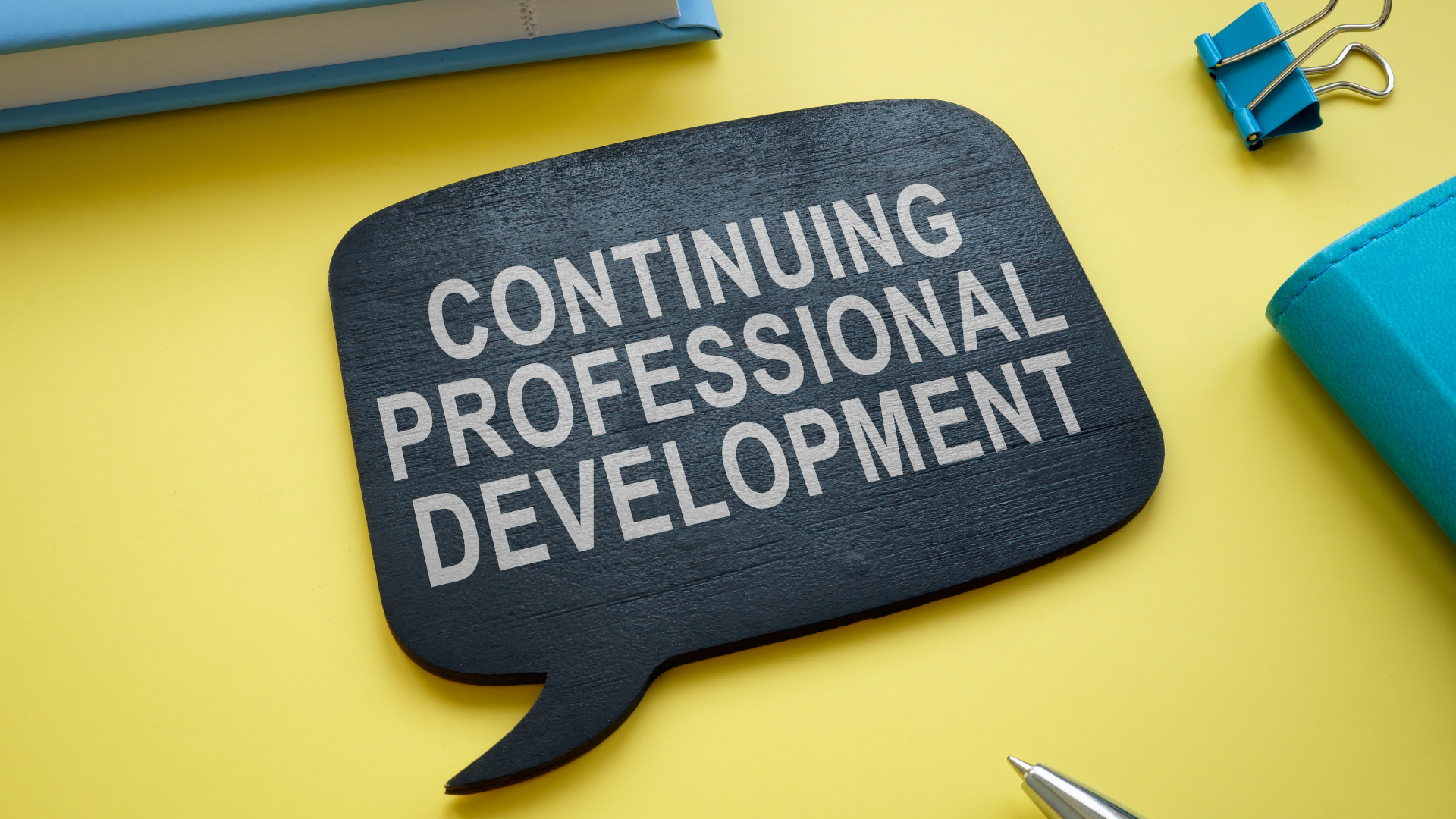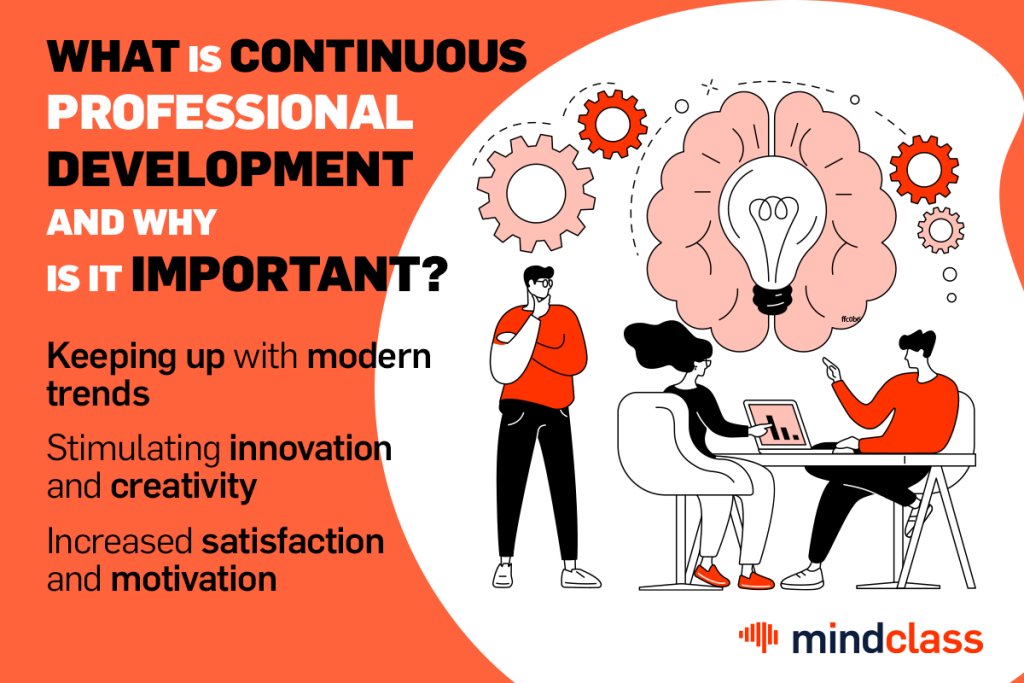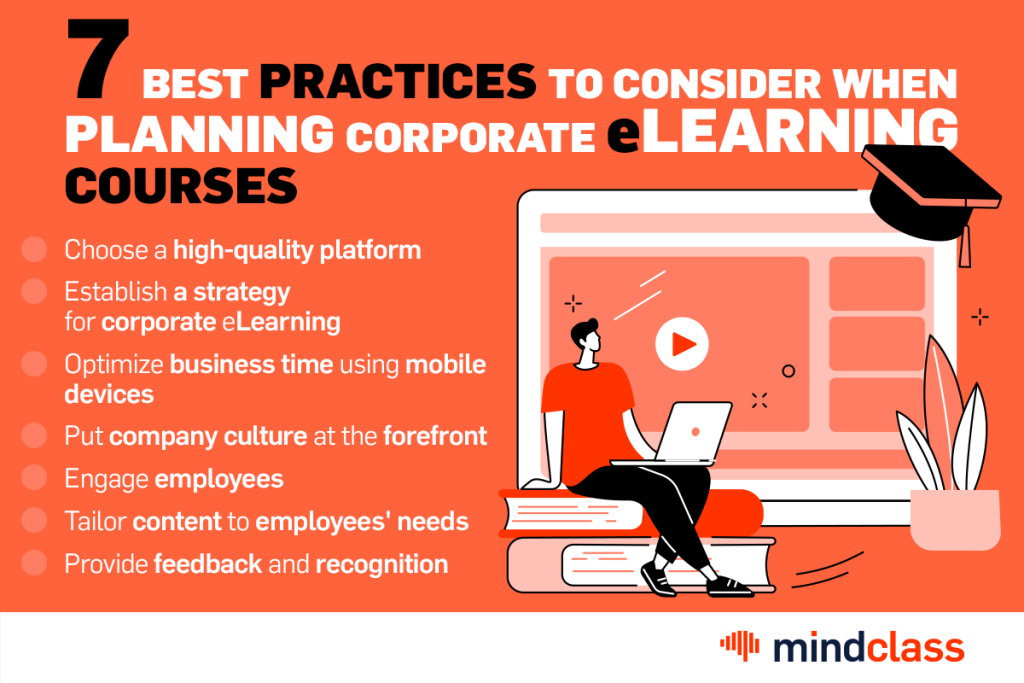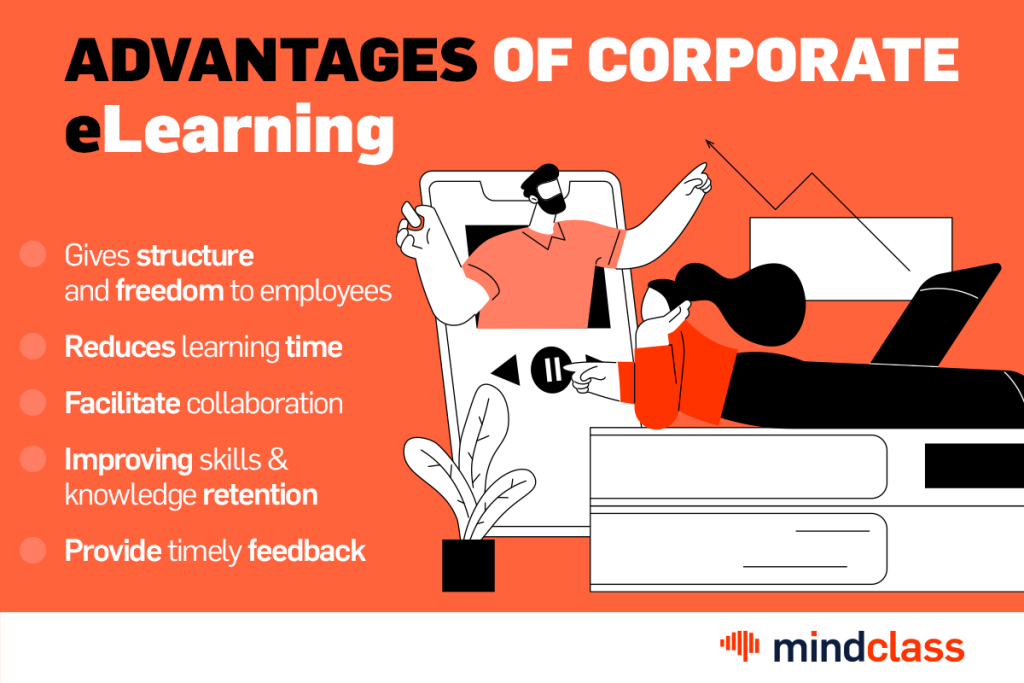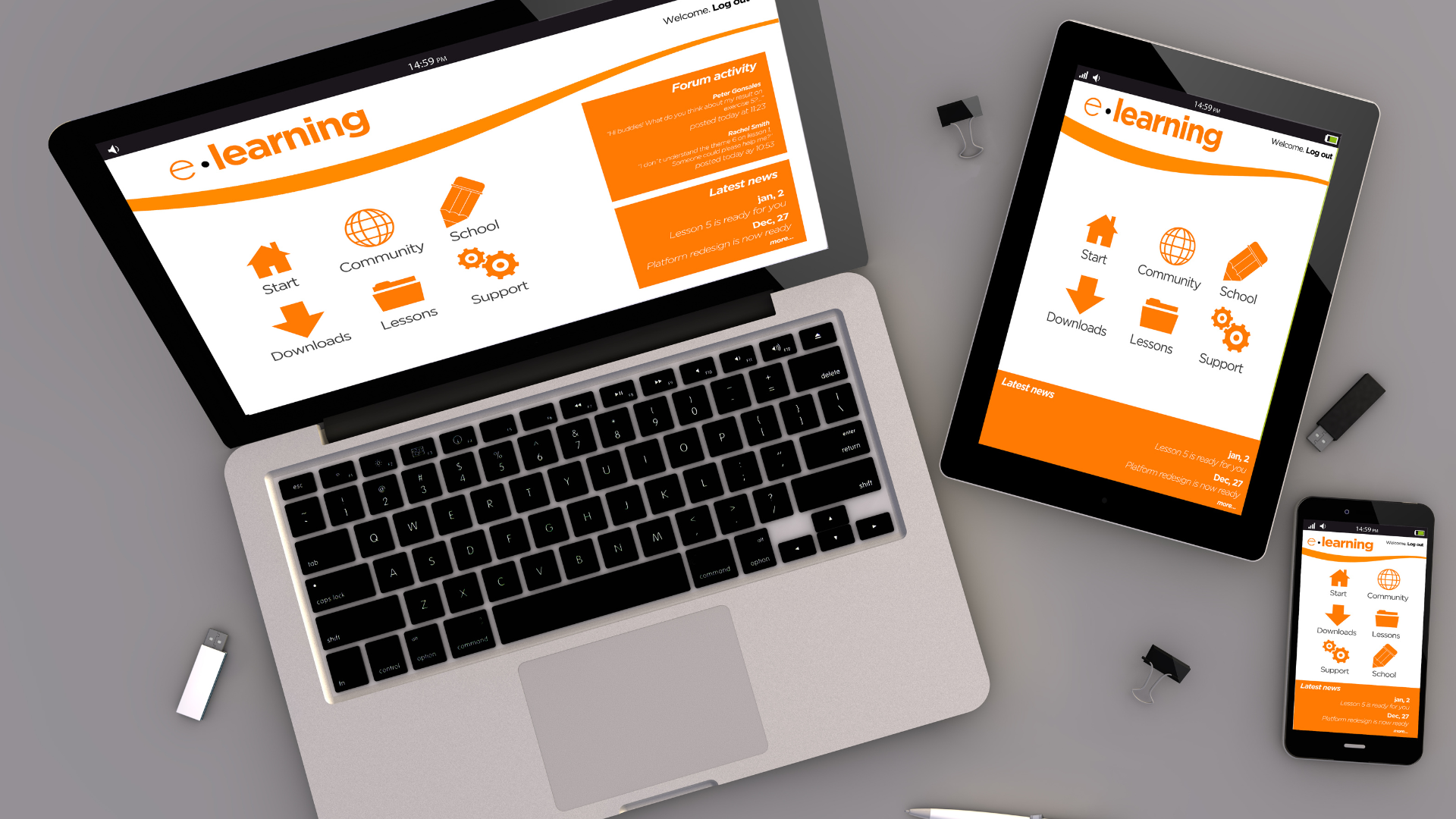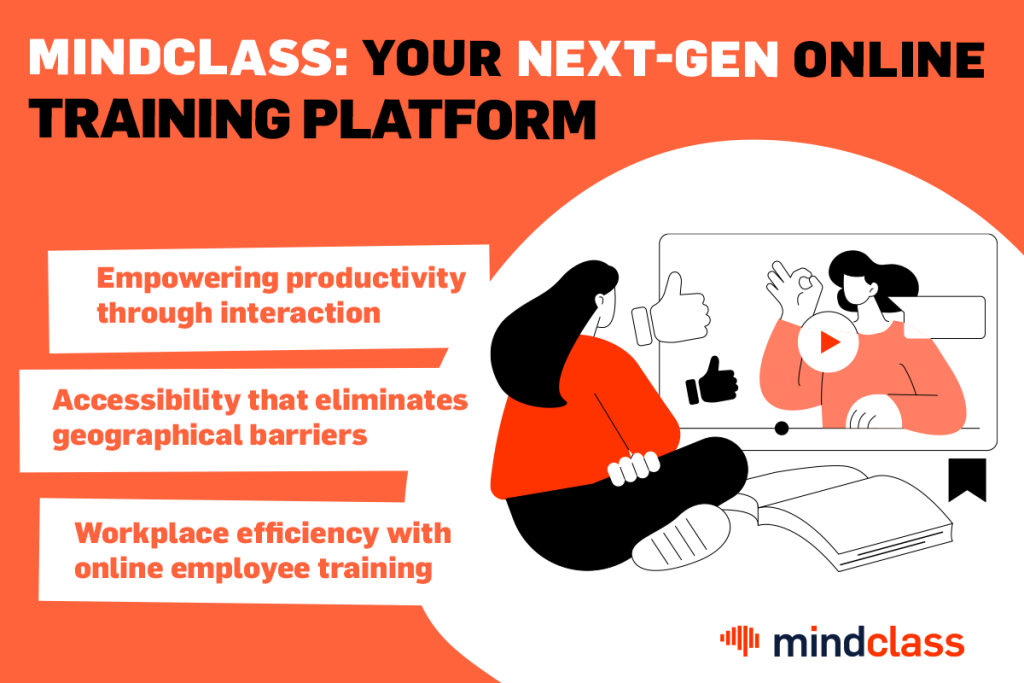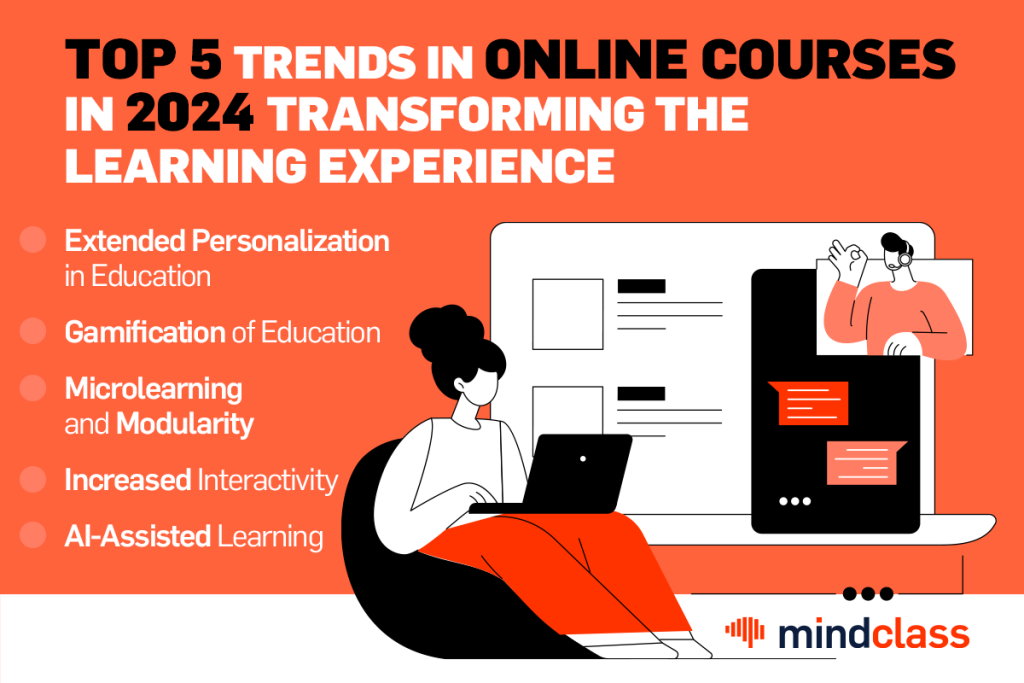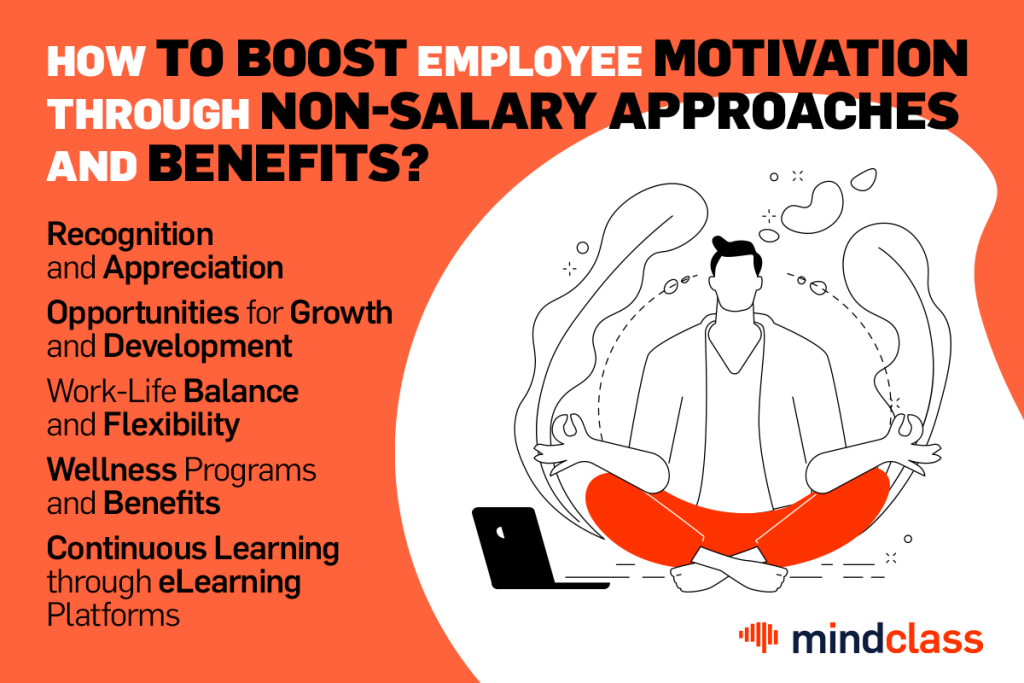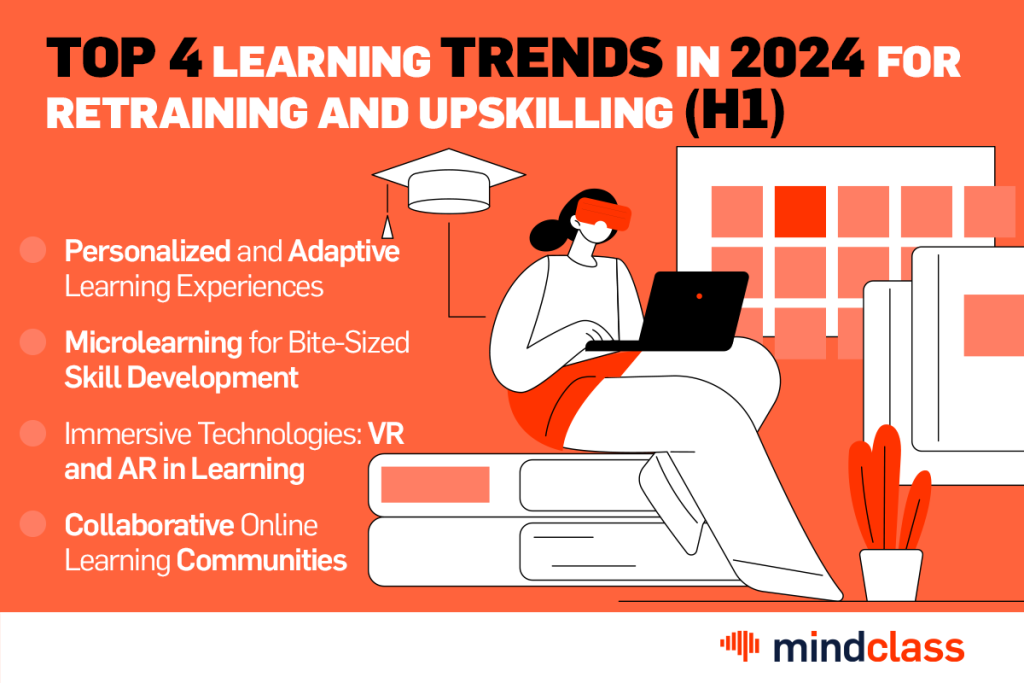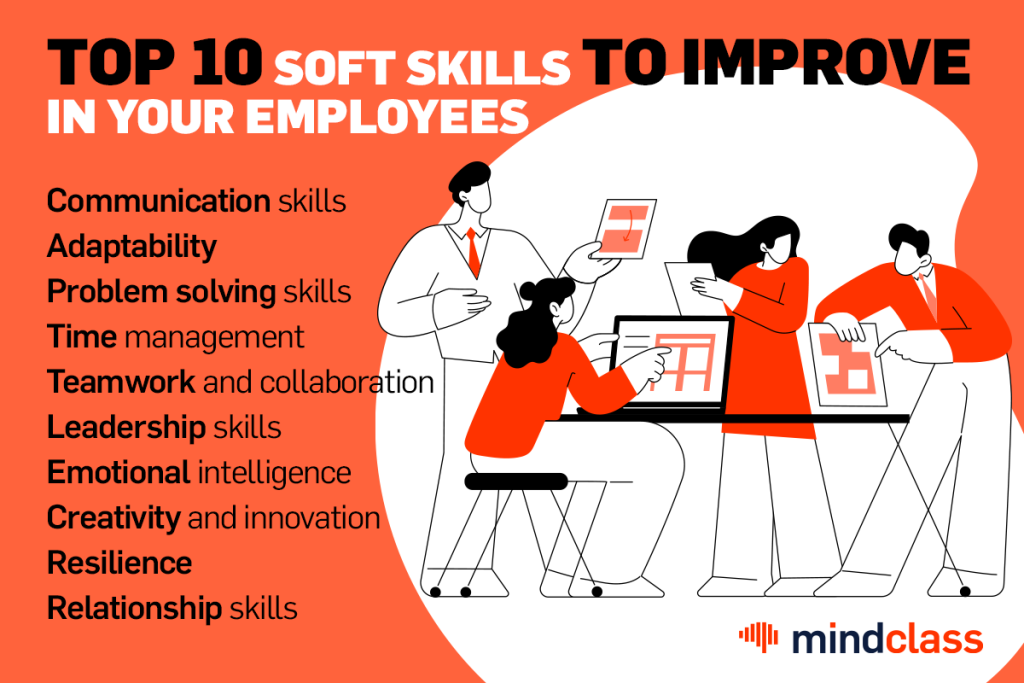The Udemy statistic that 80% of employees agree that learning new skills would also increase their engagement at work highlights the profound impact of continuous training on employee engagement and motivation.
Investing in e-learning programmes for continuous learning has become imperative for organisations seeking to remain competitive and encourage employee growth.
Improving employee engagement through e-learning training
Continuous training through e-learning platforms offers numerous benefits, one of the most significant being increased employee engagement. By offering employees opportunities to acquire new skills and knowledge through e-learning platforms, organizations can bring a sense of curiosity and enthusiasm among employees. The interactive nature of e-learning modules keeps employees engaged, leading to higher retention rates and a more motivated workforce.
Boosting performance and productivity through continuous training
Another key advantage of e-learning training is its ability to boost performance and productivity within the organization. Continuous training ensures that employees stay abreast of the latest industry trends, best practices and technological advances. This equips them with the skills and knowledge needed to perform their roles more effectively, leading to improved productivity and performance overall.
Facilitating skills development through continuous training
E-learning platforms provide a convenient and affordable opportunity for employees to continuously develop and improve their skills. Whether it’s learning new software tools, honing leadership skills or improving communication skills, e-learning modules offer a range of courses tailored to meet the evolving needs of employees. This focus on skills development not only benefits individual employees but also strengthens the overall capabilities of the organization.
Promoting lifelong learning through e-learning
Continuous training through e-learning promotes a learning culture within the organization. By encouraging employees to pursue continuous professional development, organizations demonstrate their commitment to supporting the growth and advancement of employees. This provides a sense of loyalty and dedication among employees, who feel valued and motivated in their personal and professional development journey.
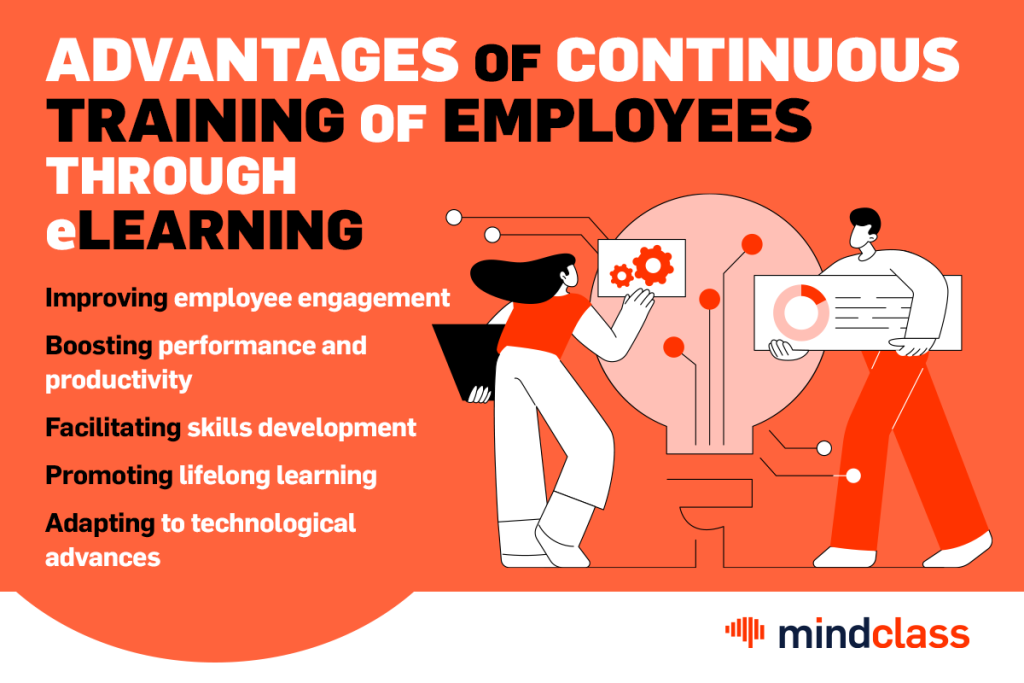
Adapting to technological advances through continuous learning
E-learning training allows employees to adapt quickly to new technologies and tools, ensuring they remain competent and skilled in their roles. Whether it’s implementing new software systems or leveraging data analytics tools, continuous e-learning training gives employees the skills they need to thrive in a technology-driven environment.
When it comes to online learning and video courses, it’s essential that your organization has a fully integrated and tailored e-learning platform for an engaging continuous learning experience.
mindclass is an ideal tool that offers a wide range of over 650 online courses for corporate learners.



